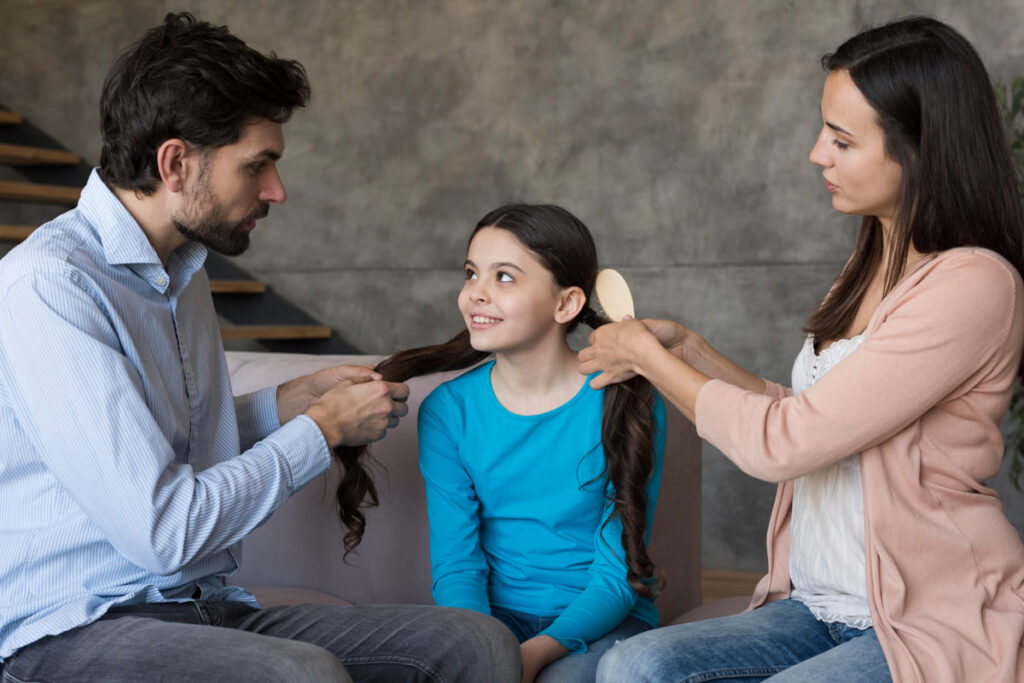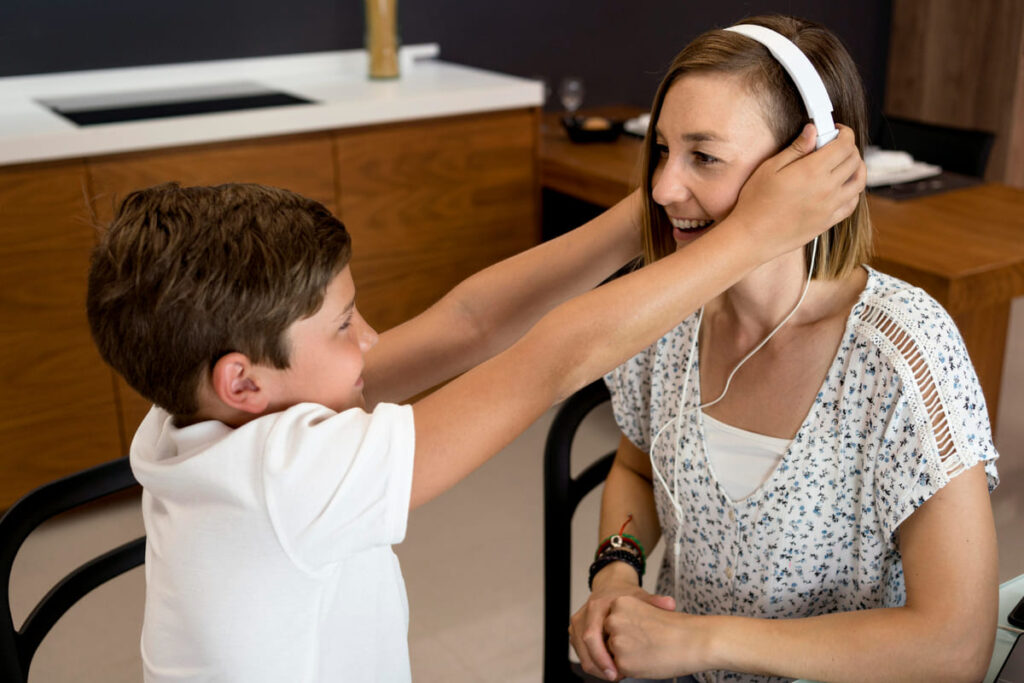Why Society’s Idea of ‘Successful Parenting’ Needs a Serious Update for Today’s Families
You’ve probably noticed that the way people talk about “successful parenting” hasn’t really kept up with how much the world has changed. Between new technology, shifting social norms, and growing pressures, what used to be considered good parenting might not fit today’s reality.
Successful parenting today means recognizing those changes and adjusting expectations to better support both parents and kids. It’s about understanding that parenting isn’t a one-size-fits-all role and that society’s idea of success can sometimes add more stress than help.
Rethinking success beyond academics and test scores

You’ve probably been taught to equate success with good grades and high test scores. But real-life success is much broader than what shows up on a report card. It’s about developing skills like creativity, emotional intelligence, and resilience.
When you focus only on academics, you might miss how important social skills and curiosity are for your child’s growth. Kids need room to explore their interests and figure out who they are beyond the classroom.
Test scores give a narrow view of what kids can do. They don’t measure qualities like kindness, problem-solving, or confidence, which are just as important for life. Shifting your idea of success helps you support your child as a whole person.
Parenting isn’t just about pushing for the highest marks. It’s about helping your child thrive in all parts of life—emotionally, socially, and mentally—not just academically. That balance is key to raising well-rounded kids.
Prioritizing kids’ mental health over constant achievement

You’ve probably noticed how much pressure kids face to always perform well. It’s easy to get caught up in grades, sports, and extracurriculars, but mental health often gets pushed aside.
When you focus less on nonstop achievement and more on how your child feels, you help them build resilience. They learn that their worth isn’t just about results or trophies.
It’s helpful to create space for your kids to talk about their emotions without judgment. This shows you value their well-being, not just their accomplishments.
Constant pressure can lead to stress, anxiety, and burnout. Giving your kids emotional support instead of just pushing success makes a big difference in long-term happiness.
Remember, balancing achievement with mental health isn’t about doing less. It’s about seeing your child as a whole person, not just a checklist of goals.
Encouraging independent problem-solving instead of micromanaging

When you micromanage your kids, you might think you’re helping, but it often stops them from learning how to deal with challenges on their own. Instead, try stepping back and letting them face difficulties without jumping in too fast.
You can support them by asking questions like “What do you think you should do next?” This encourages them to think through problems and come up with solutions themselves. It’s about guiding, not taking control.
Giving your kids space to make their own decisions helps build their confidence and resilience. When you allow mistakes, they learn valuable lessons that no amount of telling can replace.
Remember, your role isn’t to solve their problems but to help them recognize what the real issue is. Once they understand that, they can brainstorm different ways to fix it. This skill is key for their future success.
Valuing emotional intelligence as much as IQ

When you think about successful parenting, it’s easy to focus on things like grades, test scores, and academic achievements. But there’s more to success than just IQ. Emotional intelligence, or EQ, plays a huge role in how kids manage feelings and build relationships.
You want your child to navigate challenges, not just solve problems on paper. EQ helps with recognizing emotions, handling stress, and understanding others, skills that matter a lot in real life.
For years, society has put IQ on a pedestal, almost ignoring emotional skills. But teaching kids to be aware of their feelings and empathetic toward others sets them up for stronger social connections and better mental health.
You can update your idea of success by giving EQ equal attention. That means encouraging your child to talk about emotions, practice patience, and show kindness. Balancing IQ and EQ helps your child grow in a way that feels more complete.
Parenting isn’t just about making your child smart—it’s about helping them become emotionally capable, too. Both IQ and EQ shape who they’ll become.
Cutting back on intensive parenting practices that stress families

You don’t have to be “on” all the time to be a good parent. Intensive parenting often pushes you to over-schedule and micromanage every moment of your child’s life, which can add unnecessary stress. It’s okay to slow down and let things unfold more naturally.
When you ease up on high demands, everyone in your family may feel less pressure. This approach can reduce anxiety not just for kids but for you, too. Constantly trying to meet intense expectations can take a toll on mental health.
Trying to be perfect or always pushing your kid to achieve might backfire. Instead, focus on spending quality time without too many agendas. Giving your child some space to explore and fail on their own helps build independence.
Remember, parenting doesn’t need to be exhausting or overwhelming. You can support your child without controlling every detail or sticking to a rigid plan. Sometimes, less is more when it comes to family well-being.
Supporting diverse family structures and parenting styles

You might notice that families today look very different from the traditional image of two married parents. Single parents, blended families, same-sex parents, and other setups are more common now. Each family type brings its own way of doing things, especially when it comes to parenting.
Your idea of what makes parenting “successful” should include more than just strict rules or typical roles. Parenting styles vary—some parents are more relaxed, others more structured, and both can work depending on the situation. What really matters is how parents show care and guidance.
You should also consider how culture and income shape parenting. Not everyone has the same resources or values, and that impacts how families raise kids. Recognizing this helps you move beyond one-size-fits-all standards.
Supporting diverse families means understanding these differences and not judging them by old norms. When you do that, you allow space for different approaches to thrive, which benefits both parents and children.
Highlighting the importance of parental self-care and boundaries

Taking care of yourself is not just a nice-to-have when you’re a parent—it’s necessary. When you prioritize your own mental and physical health, you’re better able to handle the everyday ups and downs of parenting.
Setting clear boundaries is part of this. Your kids aren’t naturally aware of when you need space or time to recharge. It’s up to you to create those limits so everyone knows what’s okay and what’s not.
Boundaries help kids feel secure because they know what to expect. They also teach responsibility and self-discipline without needing harsh punishments.
You don’t have to feel guilty about taking breaks or asking for help. Self-care is not selfish—it’s about making sure you have the energy and focus to be the parent you want to be.
Remember, when you show your kids that you respect yourself enough to set limits, you’re giving them a powerful example of healthy behavior.
Promoting community and societal support for parents

Parenting doesn’t have to be a solo mission. When you get support from your community, it can make a big difference in managing stress and feeling confident.
Communities that share resources and offer encouragement help parents navigate daily challenges better. You benefit not just from advice but also from real emotional backup.
Society plays a role too. Businesses and governments investing in family-friendly policies make your life easier, whether it’s through better childcare options or more flexible work environments.
When you’re supported, you’re more likely to raise kids who grow into well-adjusted adults. So, pushing for stronger community ties and bigger societal support isn’t just helpful—it’s necessary.
You deserve a parenting experience where help is easy to find, and your well-being matters. That means updating how we think about success in parenting to include the strength found in togetherness.
Challenging the pressure of overscheduling kids’ activities

You might feel like filling every minute of your child’s day with activities is doing them a favor. Society often praises busy schedules as a sign of good parenting and ambition. But this constant rush can actually backfire.
When you pack your kid’s time with lessons, sports, and tutoring, they might start feeling stressed or burned out. Too much pressure can lead to anxiety and take away the joy from simply being a kid.
It’s important to remember that not every moment has to be planned. Giving your child some free time to explore, imagine, or just relax is valuable. This unstructured play helps them develop creativity and emotional balance.
You don’t have to say yes to everything. Setting limits on activities lets your child focus better on what they really enjoy. It also gives your family time to connect without always being on the go.
Rethinking what success looks like means recognizing that kids need breathing room just as much as structured learning or achievement. You can support their growth without overscheduling their lives.
Accepting that mistakes in parenting are part of growth

You’re not perfect, and that’s okay. Mistakes in parenting aren’t just inevitable—they’re necessary.
When you slip up, it’s a chance to learn something new about your child and yourself. Treat those moments as opportunities, not failures.
Being kind to yourself is key. One mistake doesn’t erase all the good you do as a parent. Giving yourself grace lets you keep growing without getting stuck in guilt.
By accepting mistakes, you model resilience for your kids. They learn that it’s okay to mess up and keep trying, which can build their confidence and emotional strength.
Parenting isn’t about flawless execution. It’s about adapting, learning, and communicating openly, even when things don’t go as planned. That mindset shift can make your journey feel a lot less stressful.







